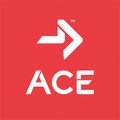As the fitness industry continues to evolve, employment opportunities for group fitness instructors (GFIs) are expanding. While you may have experienced group fitness in a health club setting and, therefore, started your search for teaching opportunities there, read on to find out more about the various paths that exist.
Opportunities to teach group fitness can be loosely organized into the following broad categories:
Commercial Clubs
Commercial clubs, often referred to as multipurpose health clubs, have numerous amenities such as a cardio area, weight room, functional training area, several group fitness studios, childcare and pools, with cost varying based on the number of amenities available. In your area, you might find locally owned, single-location clubs, national chains (e.g., 24 Hour Fitness and Life Time Fitness) and/or franchised facilities (e.g., Anytime Fitness, Snap Fitness and Gold's Gym).
Clubs such as these have historically been considered the most common employers for GFIs. Because they have multiple studios and accommodate a wide variety of members, these facilities need many instructors, modalities and personalities, which can increase the opportunity for GFIs. Instructors are hired to teach freestyle (i.e., your own choreography/class design), branded or licensed programs (e.g., Zumba and Les Mills), as well as proprietary programs (facility-specific classes) that require in-house training to deliver. The level of experience required to work at a commercial club will vary.
Boutique Studios
A boutique fitness studio is a small gym (800 to 3,500 square feet; 74 to 325 square meters) offering a specific modality [e.g., high-intensity interval training (HIIT), boxing, cycling or yoga]. You may also find multimodality studios. They are similar to commercial health clubs in that you might find locally owned, single-location studios or franchised facilities (e.g., Orangetheory, F45 Training and CorePower Yoga).
Studios do not typically employ as many instructors as commercial clubs. However, once hired, GFIs can often work more hours per week. While a studio may use instructors to teach freestyle, many have in-house training for the specific modality or modalities in which they specialize. Typically, the “products” offered (i.e., classes) are proprietary, meaning more oversight from management, and the expectations for creating community and positive experiences are higher due to a price tag for consumers.
Community Recreation Centers
A community recreation center is very similar to a commercial club in terms of fitness amenities. Rec centers typically have a robust children's focus (e.g., childcare, activities and sports) and are more affordable than most commercial clubs. A municipal government agency administers the facility.
Rec centers are a common employer for GFIs, as they have multiple studios to accommodate a wide variety of members, and therefore need many instructors, modalities and personalities. GFIs usually teach freestyle or branded/licensed programs. The required experience differs from location to location, but it is typically easier to get your foot in the door at these types of facilities.
College Recreation Centers
Many colleges offer various recreation programs through an on-campus fitness center. Beyond the multiple sports and recreation activities they provide, college rec centers sometimes offer cardio areas, a weight room, functional training areas, group fitness studios and pools, depending on the institution's size and funding.
College rec centers usually employ students of the institution, though there may be opportunities for non-students, depending on the group fitness department's size. Some college rec centers offer classes on teaching group fitness, provide mentoring and help develop a GFI's skills throughout their enrollment at the institution. GFIs are usually hired to each freestyle or branded/licensed programs.
Non-profit Fitness Centers
Non-profit fitness centers are very similar to community recreation centers but operate independently of municipalities. The most common are the YMCA and Jewish Community Centers (JCCs). The amenities are similar to a commercial health club and typically mirror the robust children's focus of a community rec center. The price point is usually similar to community rec centers, as well.
YMCAs and JCCs are common employers for GFIs, as they have multiple studios to accommodate a wide variety of members, and therefore need many instructors, modalities and personalities. GFIs might teach freestyle or branded/licensed programs. The required experience differs from location to location, but it is typically easier to get your foot in the door at these types of facilities.
Hotels/Spa/Resorts
Often overlooked as a GFI opportunity, hotels, spas and resorts may offer travelers fitness amenities. Some hotels operate group fitness studios and employ instructors to teach freestyle or licensed programs. Spas and resorts may have similar offerings as hotels, while wellness-focused spas (e.g., Canyon Ranch, Miraval and Rancho La Puerta) may offer more opportunity, as they typically have a robust fitness program to staff. As with other opportunities described above, freestyle, licensed/branded or proprietary facility programming may be provided.
Corporate Wellness
Another frequently overlooked opportunity for GFIs is corporate wellness. Many companies offer wellness programs for employees and have invested in onsite facilities. The company itself might run the facility and hire GFIs to teach, or corporate wellness organizations might be used to hire and place staff to lead group fitness on behalf of the company. As with other opportunities described above, freestyle, licensed/branded or proprietary facility programming may be provided.
Active Adult and Assisted Living Communities
GFIs can also explore active adult communities and assisted living facilities to see if opportunities exist for leading classes. Specific training will be needed to facilitate group fitness classes in these settings.




 by
by 








